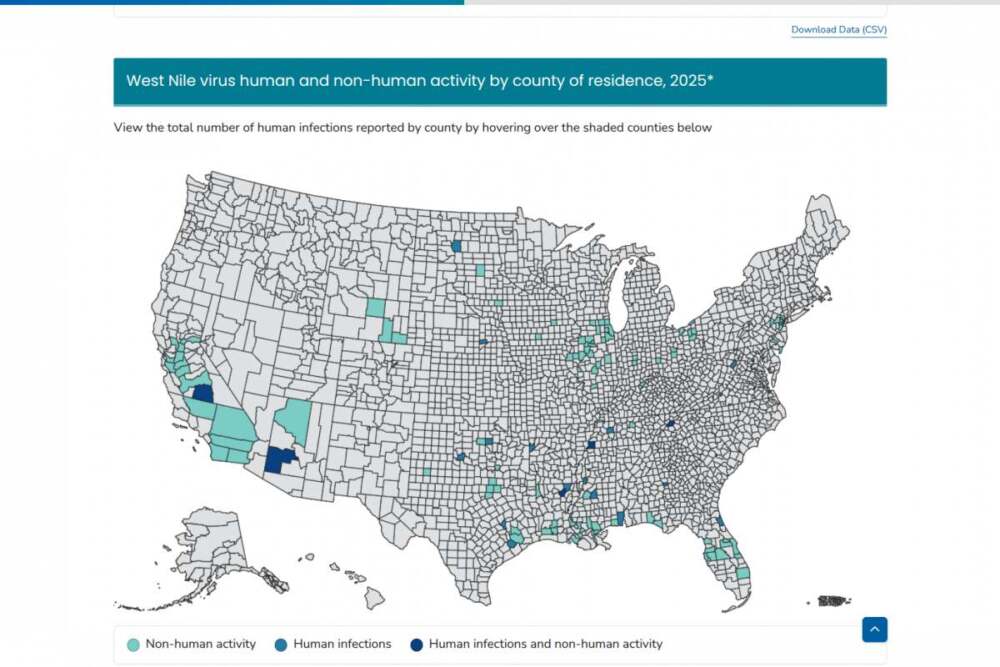Health officials are warning of a notable rise in West Nile virus (WNV) cases across the United States in 2025. More than 770 infections have been reported so far, including nearly 500 severe cases. This represents a significant increase compared to typical levels for this time of year, prompting renewed calls for public vigilance.
Geographic Spread and Hotspots
The outbreak is widespread, affecting multiple states. Colorado has seen particularly high infection rates, especially in Fort Collins, where mosquito samples indicate elevated virus activity. Other states, including Texas, Connecticut, and New York, have also reported confirmed human cases, with multiple counties detecting infected mosquitoes.
Who Is Most at Risk
While most people infected with WNV experience mild or no symptoms, about 1 in 150 cases can develop severe neurological complications such as meningitis, encephalitis, or paralysis. Older adults, particularly those over 50, and people with underlying health conditions are most vulnerable. Early medical attention is crucial for reducing the risk of severe outcomes.
Preventive Measures
Health experts recommend several strategies to reduce the risk of WNV infection:
- Use insect repellents containing DEET, picaridin, or oil of lemon eucalyptus.
- Wear protective clothing like long sleeves and pants, especially during dawn and dusk when mosquitoes are most active.
- Eliminate standing water around homes to prevent mosquito breeding.
- Ensure window and door screens are intact to block mosquito entry.
Residents experiencing symptoms such as fever, headache, body aches, joint pains, vomiting, diarrhea, or rash should seek medical attention promptly.
Bottom Line
The 2025 West Nile virus season underscores the ongoing risk posed by mosquito-borne illnesses. With transmission expected to continue through September, individuals—especially those in high-risk areas—should follow preventive measures and stay alert to local health advisories to protect themselves and their communities.















Leave a Reply